St Jude's has always been a place where young minds are nurtured and bold ideas are born. However, turning a passion into a sustainable business is no easy task - it requires practical skills, mentorship, and the right kind of support. To help bridge this gap, the school recently launched the Next Frontier Incubator and Small Grants Program, designed to help alumni transform their entrepreneurial dreams into reality.
The 20-week program, which kicked off in January, offers 25 alumni the opportunity to develop essential business skills through expert mentorship, tailored resources, and hands-on training in critical areas such as business planning, financial management, goal-setting, and legal compliance.
Program Specialist Neema explained that the initiative was established to help alumni with innovative business ideas transform them into successful ventures and build a strong foundation for long-term growth.
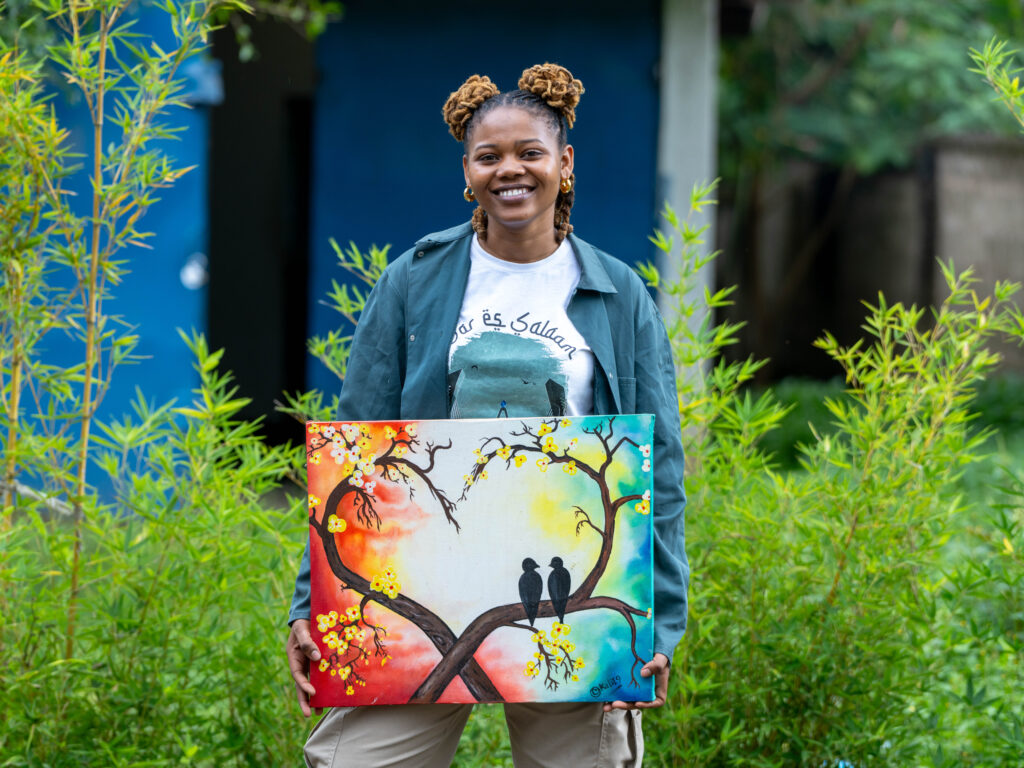
“We found that many alumni had incredible ideas but didn't know the next steps. They were caught between creative development and the practical aspects of business management. This program helps bridge that gap by offering the resources needed to turn these ideas into a viable business,” Neema says.
The inaugural group includes ideas from a range of industries, including art, manufacturing, construction, and transport. They each submitted a business proposal detailing their vision, goals, and the challenges their businesses aim to address, which formed the basis of their admission to the program.
“Many of these ideas aim to solve real-world problems and make a positive impact on people and the planet. Some are startups that, despite winning awards, are facing challenges in scaling, while others are still in the early stages of development and getting their ideas off the ground. The cohort meets twice a week for expert-led sessions and assignments to help them refine their goals, develop their mission statements, and map out their next steps,” Neema says.
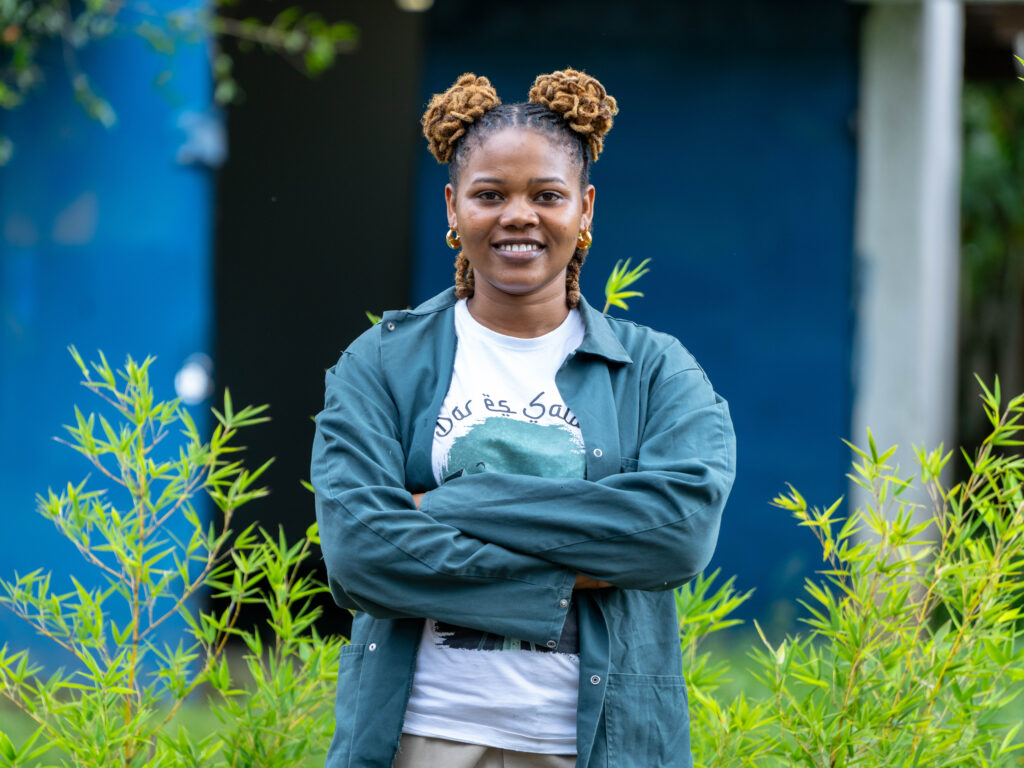
At the end of the program, the students will pitch their ideas to an external panel of experts who will assess their business models, scalability, and community impact. Successful pitches will receive grant funding up to US$5,000 to support key areas such as product development and marketing.
One alum, Queen, Class of 2021, said she jumped at the opportunity to be part of the program. After studying art and design in Dar es Salaam, she founded The Kids Hub, an art workshop offering creative classes in painting, jewellery making, and digital art for children and young adults in Arusha.
“I've always had a passion for art, and I wanted to create a space where young people could explore their creativity,” says Queen, who has a studio in the centre of Arusha where she runs her classes.
“Art is often overlooked in schools, so I wanted to provide a space where kids could develop their skills, express themselves, and sell their work. We've already held two classes, and the response has been incredible.”
Queen's ultimate goal is to expand The Kids Hub into a larger space where people of all ages can learn and appreciate art - a goal she feels is within reach thanks to the insights gained from the program.
“The Next Frontier Incubator and Small Grants Program has been a real eye-opener. It's hands-on and practical, and the sessions have given me so many tools to improve my business. I've learned how to manage stress, scale my business, and navigate the financial side. It's a complete package that has really set me up for success,” says Queen.
“I'm also learning so much from my fellow participants, as we all exchange advice and insights. My goal is to run regular classes and continue to grow the business, and by the end of this program, I'm confident I'll be able to achieve that.”
In addition to supporting the entrepreneurial endeavours of alumni, St Jude's has also launched a Pre-Incubator Program for current high school students. This extracurricular club serves as a stepping stone into the Next Frontier Incubator and Small Grants Program, offering students the chance to explore entrepreneurship as a potential career path from an early age.
“The Pre-Incubator Program provides students with the tools and support they need to develop their ideas and prepare for the full incubator program if they wish to pursue it professionally after graduation,” Neema explains.
“By introducing entrepreneurship at the high school level, we're encouraging students to see it as a viable career path, and empowering them to become innovators, problem-solvers, and leaders both within their communities and beyond.”
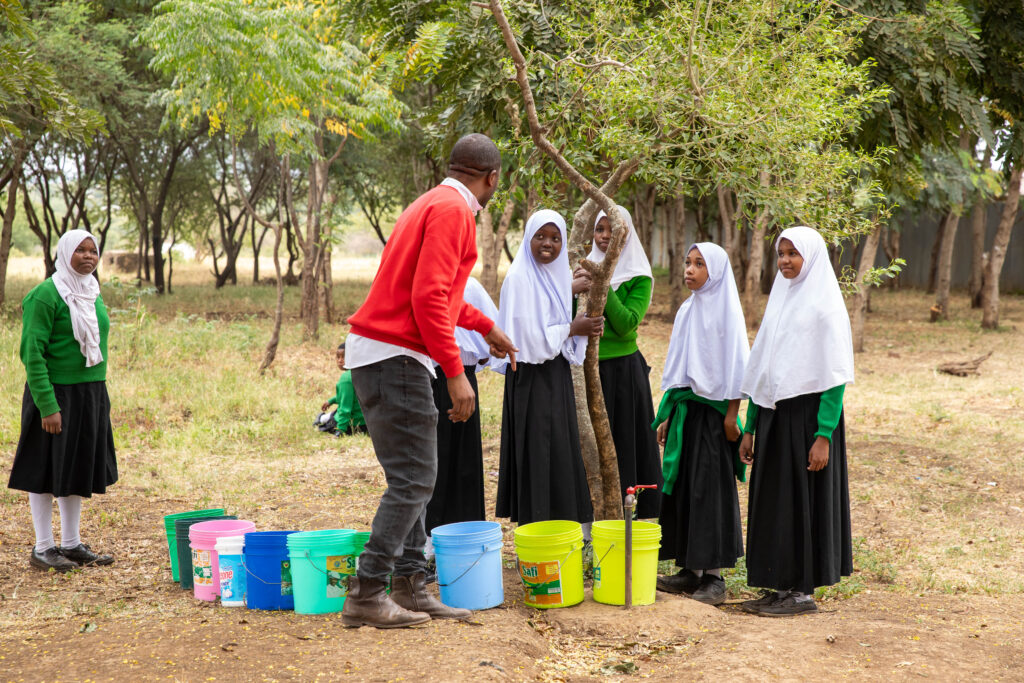
Like most students completing secondary education at St Jude's, Irene opted to join the Beyond St Jude's Scholarship Program (BSJSP). The BSJSP allows secondary school graduates to give back to the community as volunteer teachers in understaffed government schools or in various placements throughout St Jude's. Those who successfully complete their community service placement may then be eligible to receive a BSJSP scholarship to pursue higher education.
"I spent a year teaching English and Civics at a local government school in Arusha town, not far from St Jude's," shares Irene, who is currently a university scholar. "To be honest, my volunteering experience was good. I enjoyed teaching and being one of the adults that students can look up to," she adds.
Having spent over 12 years as a student at St Jude's, Irene understood how far a supportive learning environment could go to enhancing academic performance. Thus, she was particularly excited at the opportunity to share her knowledge and skills with others.
"I was privileged to attend St Jude's, which offers a wealth of resources, including computers, books, sports facilities, and educational trips, for an exceptional learning experience. But others weren't so lucky and this became clear during my Community Service Year (CSY)," narrates Irene.
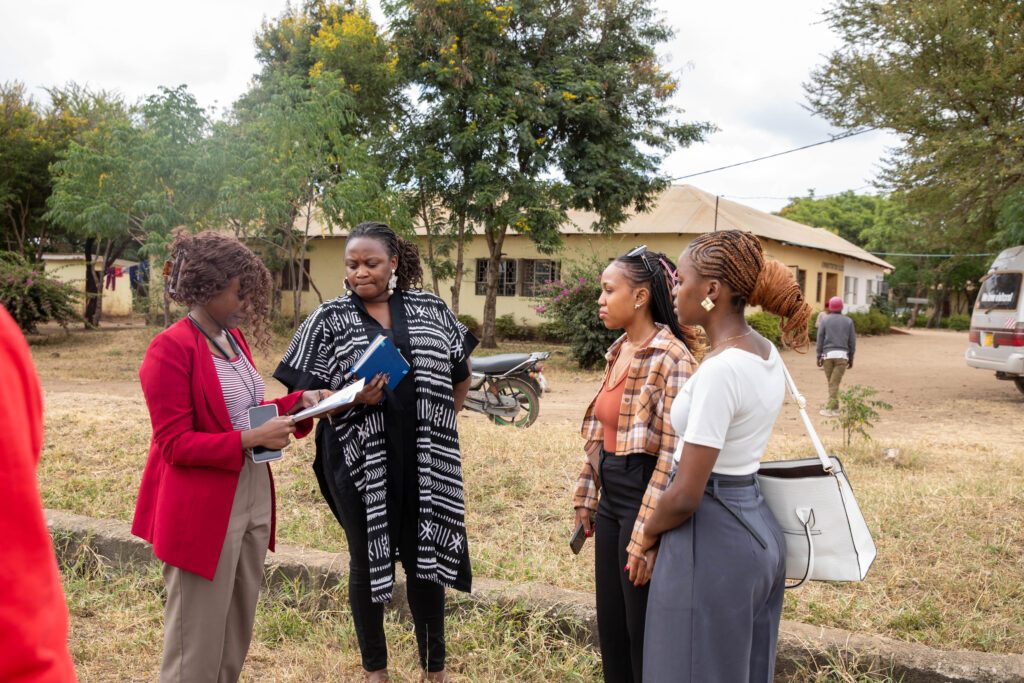
She noticed that there was only one water tap for the entire school of 600+ students. Students had to wait in long queues just to fill a cup of water. There wasn't enough water to properly conduct science experiments for students, clean the school's infrastructures, and maintain the environment. Irene was deeply disturbed by the problem and resolved to find a lasting solution for it.
"The volunteering experience left me with the belief that even the smallest actions can have great value to the community. This inspired my passion for volunteering and helping my community in any capacity I can," reflects Irene.
Soon, after completing her community service year, Irene won a scholarship grant to pursue higher education in neighbouring Kenya. She was fortunate to join the same university with her long-time friend and fellow St Jude's scholar, Queen.
Like Irene, Queen had joined St Jude's as a Standard 1 student in 2007 and went on to spend the next 13 years at the school. One of her most favourite earliest memories at St Jude's was being mesmerised by the size of the school.
"I was blown away by how big the school was, from the playing fields, to the library, dining hall, and the school buses. I was shy at first because I couldn't speak much English. But it all changed within a few years; I became fluent and fell in love with my favourite subject, history," she explains.
Upon completing her secondary school education, she too, joined the Beyond St Jude's Scholarship Program (BSJSP) and spent a year as a volunteer teacher at a government school in Arusha. When the pair linked up in university, they began looking into how they could support less fortunate students back in Tanzania.
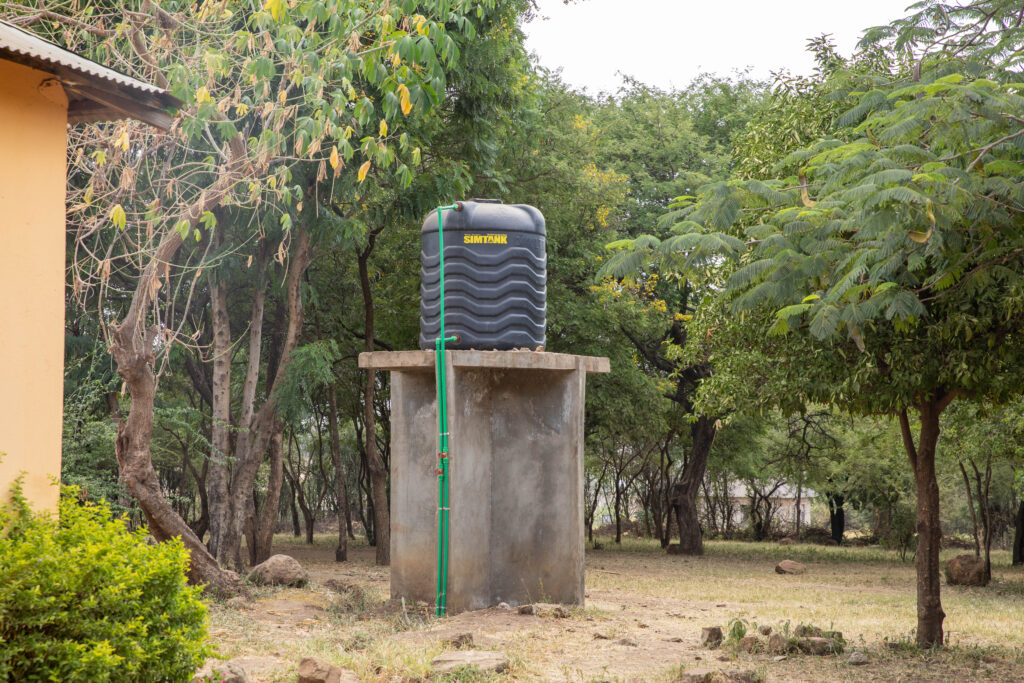
"As part of our scholarship, each of us was entitled to a one-time funding to support a project of our choice within the community. We discussed this amongst ourselves and agreed to install a water system at the government school that Irene had once volunteered in as a teacher," explains Queen.
With support from St Jude's and the external funding, the pair financed the construction of a water system at the school, which involved pumping water from a source 900 metres away. They also installed several drinking water stations throughout the school and water taps in the toilets and laboratories.
"It's a dream come true for us, to give back and create a better learning environment for others," shares Irene passionately.
St Jude's alumni continue to embrace the school's values of Respect, Responsibility, Kindness, and Honesty whenever they go. Through the Alumni Association, they regularly give to support the school financially and volunteer their time and expertise during school events. Beyond St Jude's, they are active within their communities, organising orphanage visits, launching businesses, providing employment to others, and so much more.
Every year, St Jude’s conducts health checks for its 1,800 students across three campuses to identify any health concerns, monitor existing conditions, and tailor support for those with specific needs. This year’s Health Check team included some familiar faces, with three St Jude’s alumni returning to give back to the very place where their journeys began.
For Nadia, Class of 2019, coming back was a full-circle moment. “It feels special to come back and contribute to the same process that helped me so much,” she says. “I remember the medical professionals from my own health checks when I was a student, and thinking ‘I’d love to do that one day!”
Nadia joined St Jude’s as a Standard 1 student in 2007 and is now in her fifth and final year of a Bachelor of Science in Nursing, which consists of a year doing practical internship at Mount Meru Hospital, not far from St Jude’s Sisia Campus. Despite her demanding schedule, Nadia sought special permission to take two weeks of leave from her program to participate in the health checks, knowing it was an opportunity she couldn’t let pass by.
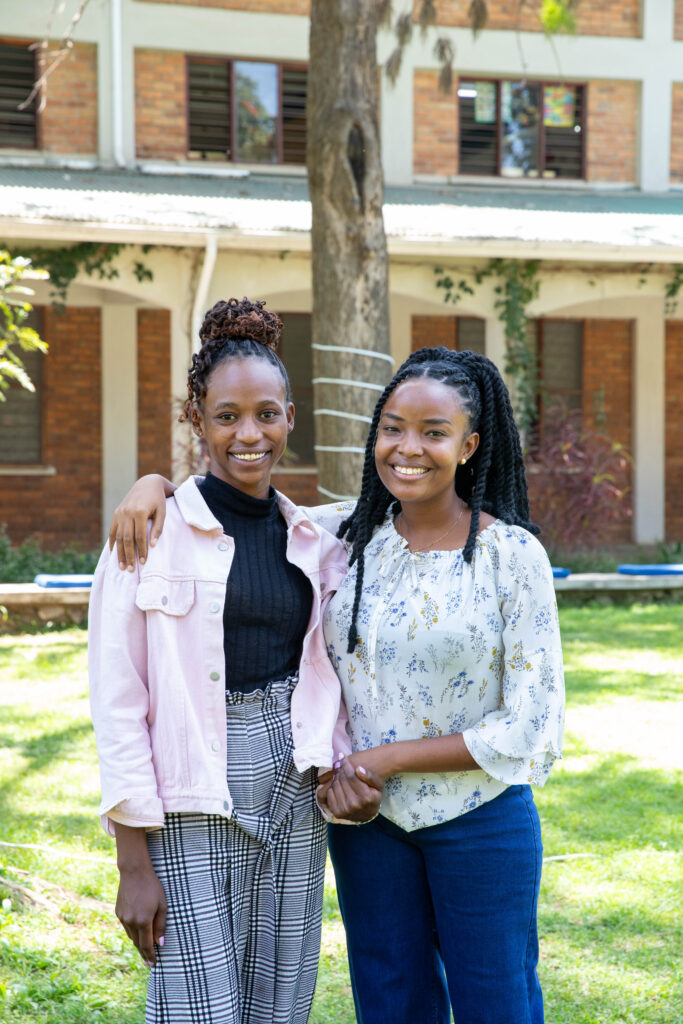
“My internship year is supposed to be uninterrupted, but I was fortunate the hospital team was very supportive and granted me the leave so I could be here,” notes Nadia, who says her passion for pursuing a career in healthcare was forged during her time at St Jude’s.
“I’ve always dreamed of returning to give back, and it’s everything I hoped it would be. I’ve seen students who were in Form 1 when I was in Form 6 who said, ‘Oh Nadia, look at you now!’ and I told them, ‘Everything is possible. You just have to believe in it,’ she says.
Returning alongside Nadia was Erneus, Class of 2020, who vividly recalls his first health check after joining St Jude’s in 2018 as a Form 5 student. “I was so happy as I had never had a check-up like that before. We were advised on how to improve our health, and it was crucial for me. It’s very fulfilling to now be a part of something that helped me in the past.”
After graduating with a degree in Biotechnology and Public Health in 2024, Erneus felt there was no better way to kickstart his career than applying his skills at the place that helped shape his future.
“It’s my first time volunteering in the Health Check team, and I’m learning a lot. It is so rewarding to see the students’ reactions and learn from an international cohort of experts,” says Erneus.
“I have been working in the vision team, helping assess students’ eyesight to identify any issues that could affect their learning ability. If not detected, these issues can grow and start to impact a student’s education, which is why the health checks are so important,” he says.
Like Erneus and Nadia, Winniefreda, from the Class of 2019, also volunteered in the vision team this year. She describes her return to St Jude’s as a homecoming. “I spent so much of my life here,” she says. “Being back feels like coming home. St Jude’s is where I learned and grew, and now I’m able to return the care that I once received.”
In 2023, Winniefreda completed her Bachelor of Nursing and Midwifery. She now works at a hospital in Arusha and doubles as a private nurse, providing home care as part of the government’s clinical nursing program.
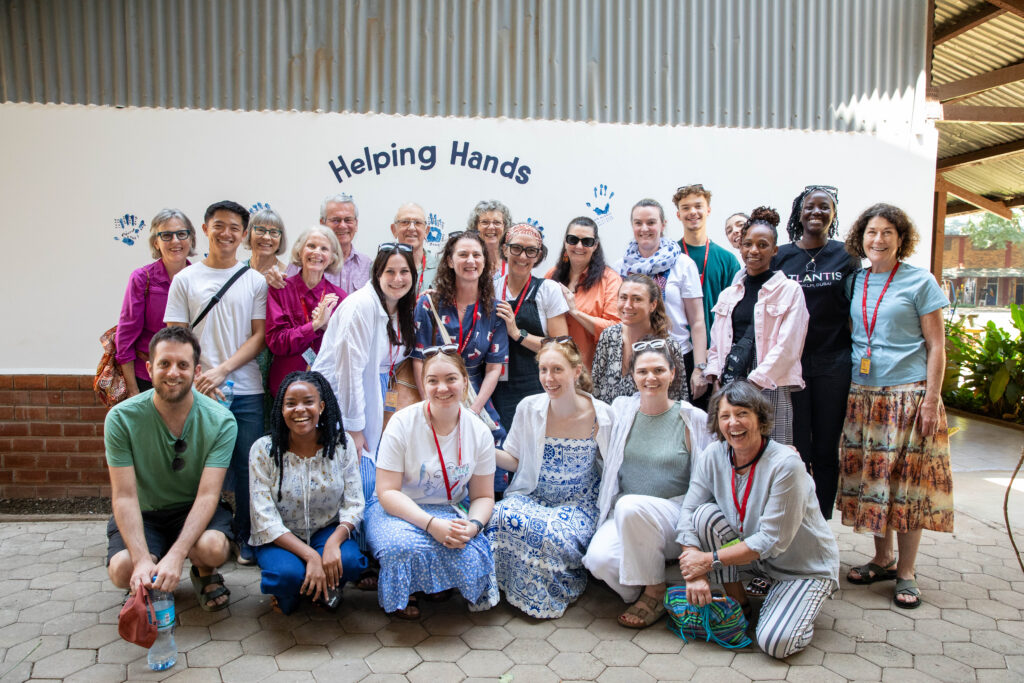
“It’s incredible to see how much the school has grown. What excites me is knowing that we’re helping students who could very well be the next generation of health professionals. Some of the students we helped this year could be in our position in the future. That’s the power of St Jude’s. It always comes back around,” she says.
Nadia, Winniefreda, and Erneus are prime examples of how a St Jude’s education creates a ripple effect, coming full circle to give back to their communities and inspire future generations.
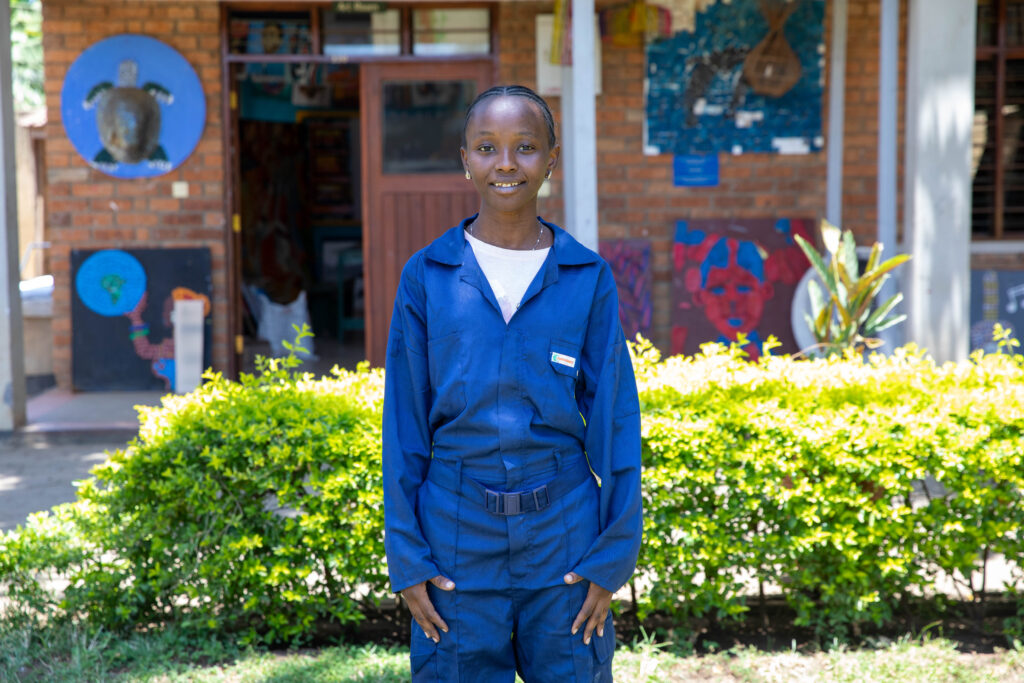
At St Jude’s, Form 4 graduates have the opportunity participate in a Community Service Semester (CSS) as a way to give back for the education they’ve received. For Fadhila, who completed her O Levels last year, choosing to serve as an art teacher in the Girls’ Secondary School art room at St Jude’s was an easy decision. With a flair for all things creative, she reflects on how the school nurtured her talent and helped her grow as an artist.
I joined St Jude's in 2014 and graduated from Form 4 in 2024. I appreciate the support the students receive from teachers and how they help us grow our talents.
I was drawn to art because it allows for creativity, and I find it really enjoyable to create. My art teacher, Mr Kephas, has been a huge source of support and inspiration for me. Plus, one of my siblings is also an artist!
I stay creative by working on many different art projects and constantly coming up with new ideas.
St Jude's supports my skills and talent by providing an excellent teacher, quality materials, and a lot of encouragement. Some of my proudest moments include finishing a difficult artwork that turns out beautiful and having my artwork sell out.
I would love to have my own art workshop where I can help support aspiring artists. I would also love to become a famous fashion designer and artist. I love all things creative!
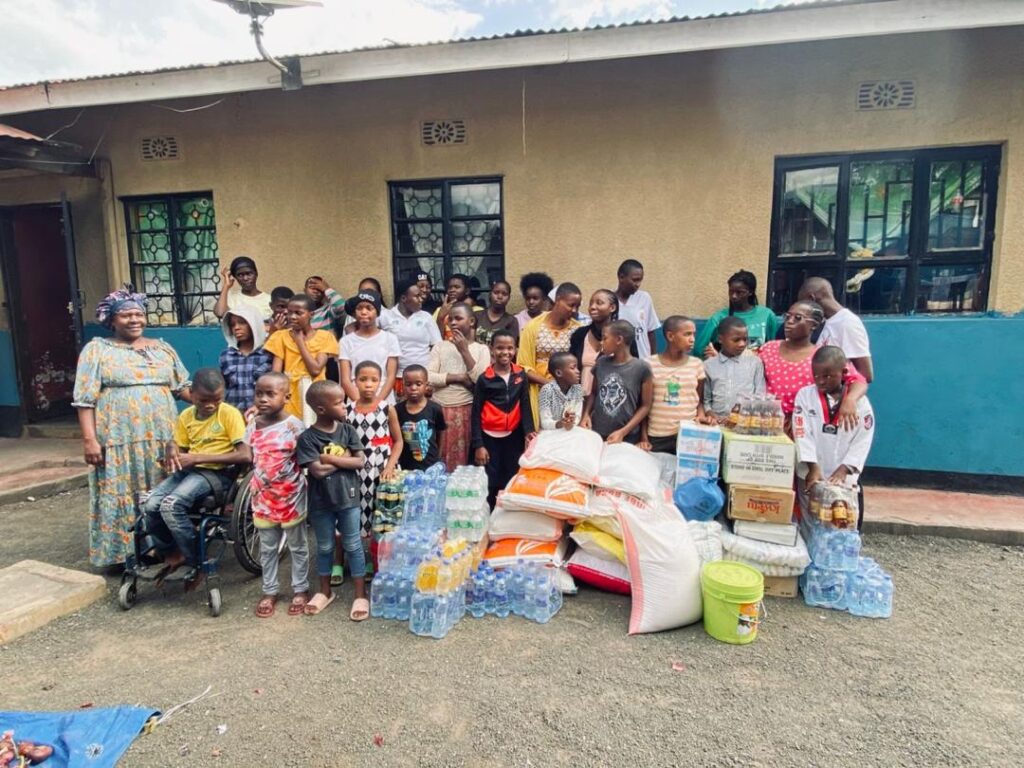
St Jude's is proud to have an engaged community of alumni who remain connected to the school. Though dispersed throughout Tanzania and beyond, they continue to embrace the school values of respect, kindness, responsibility, and honesty. From organising annual alumni reunions to volunteering at school events and even committing to regular financial giving, they are a constant source of inspiration for everyone at St Jude's.
As the year 2024 was winding down, the St Jude's Alumni Association decided to create a special moment with the less privileged in the community. They organised a visit to a local orphanage and raised more than AU$820 to purchase essential supplies, giving the children a holiday season to remember.
"The event was put together at the last minute with only about three days' notice. But the alumni community responded fast, and 125 alumni came together to support the initiative," explains Charles, one of the leaders of the Alumni Association at St Jude's.
On the eve of New Year, Charles and ten other alumni delivered their donations to the orphanage, which serves as a vital sanctuary for children without family care in the region. They arranged a holiday to remember for the children, which included playing games, music, and sharing food, toiletries, and much more.
"The children and staff at the centre were very excited to see us. Most of them were curious to know what we had going on in our lives. So, we spent quite a bit of time sharing about ourselves which was very inspiring to them," narrates Charles.
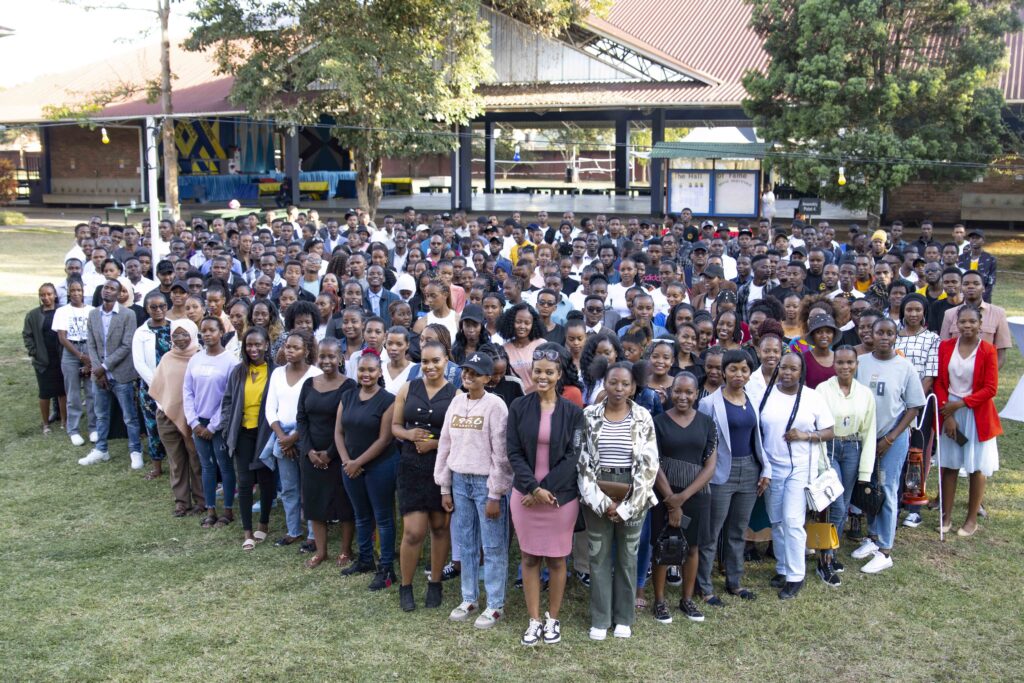
Among those who joined the volunteer delivery team was Kenedy, a 2019 St Jude’s graduate and current marketing professional. He was inspired by the initiative to give back to the community and a saw it as a way to end the year with kindness.
"I was deeply moved by the impact of our collective effort," reflects Kenedy. “For many children, the orphanage is their home due to the loss of their parents or other disadvantaged circumstances, and it was really important for us to show them they’re not alone and that we care,” he says.
For Kenedy, like many St Jude's alumni, giving back to the community isn’t new. In 2019, he participated in the Community Service Year (CSY) program, an initiative at St Jude's that gives graduates an opportunity to voluntarily teach at understaffed local government schools or assist at St Jude's ahead of higher education.
Kenedy credits his involvement in the program for deepening his commitment to service.
“It’s important for us to give back to the community. This is just one example of how we can do that,” says Kenedy.
Charles is proud of his colleagues, noting that the initiative highlighted the strength and togetherness of St Jude’s alumni. The Alumni Association was established in 2018 by founding members of St Jude’s Classes of 2015 and 2016 and has grown to over 1,300 active members since then. It continues to provide pathways for former students to stay connected to St Jude’s community once they have graduated from The School of St Jude.
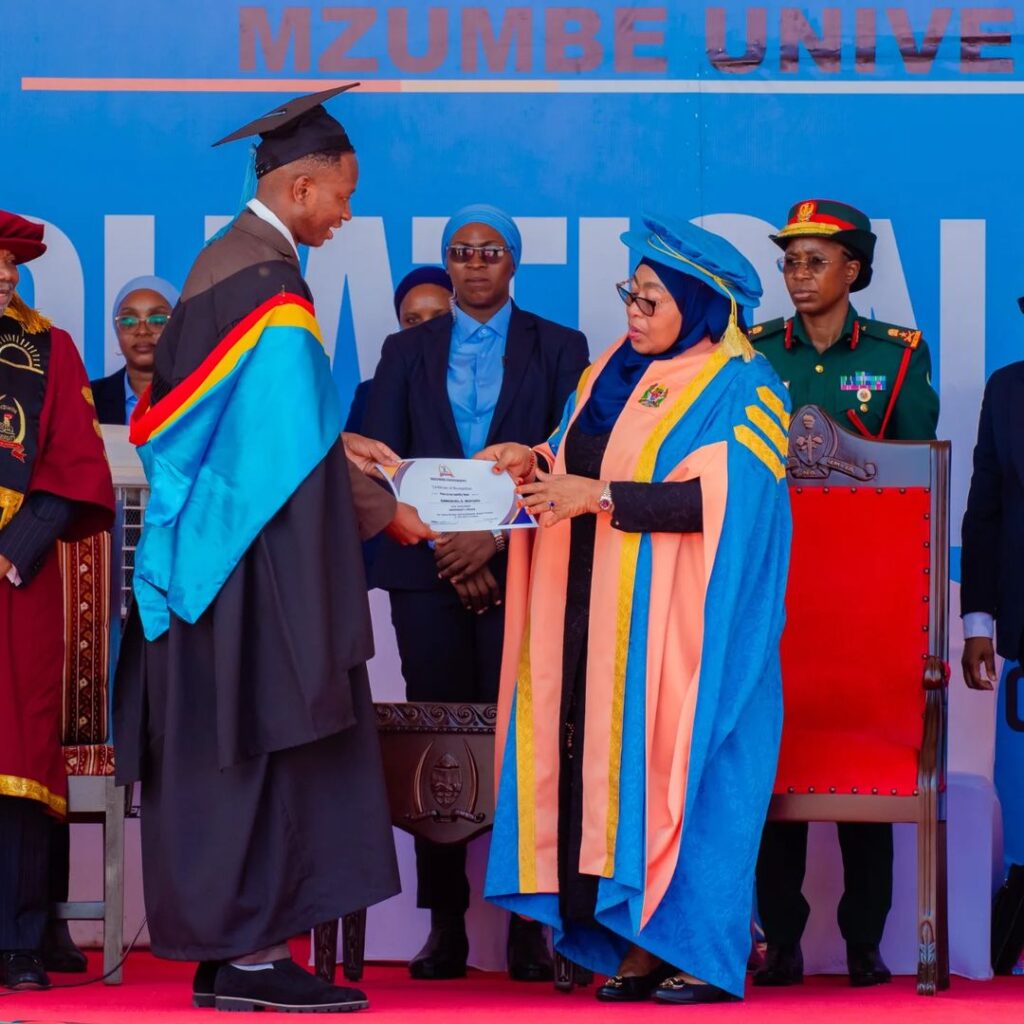
Emmanuel, a proud St Jude's alum and recent university graduate, is one of the most promising young
Tanzanian professionals. During his three years at university, he interned at some of the country’s
largest companies, became a local finalist in a prestigious continental research competition, and
graduated with the highest GPA in his class.
On his graduation day, he was personally recognised by the President of the United Republic of
Tanzania, Hon Samia Suluhu Hassan. Emmanuel looks back at his love and passion for a career in finance as a motivating factor.
"I have always dreamed of a career in finance," says Emmanuel. " It’s what I’ve loved since I was young,
and that passion drove me to work hard in my studies," he adds proudly.
Emmanuel's educational journey began at a government school where he was a regular top performer a
class. His hard work in class and impressive academic results made him a teacher's favourite and a peer mentor for his classmates. This continued into secondary school where Emmanuel became even more involved in tutoring his classmates.
"The number of teachers didn’t match the number of students at the school, so I became the go-to
person for helping others," he narrates. "I really enjoyed teaching others and it is one of my favourite
memories from school," he adds.
Emmanuel's hard work and dedication paid off. He aced his Form 4 national examinations, achieving
record-breaking results for his school, and helped many of his classmates improve their performance
and qualify for the next stage.
In Tanzania, there are two key stages to secondary schooling, the first four years of secondary school are called Ordinary Level (O Level) studies; from Form 1 to Form 4 and the final two years of secondary
school are called Advanced Level (A Level); Forms 5 and 6. At the end of each stage, students sit for a
series of standardised national examinations organised by the government. Only those who achieve a
determined pass mark progress to the next stage.
A few weeks after the national results were released, Emmanuel received an invitation to apply for a
scholarship to receive a 100% free, quality education at St Jude's. If successful, he will be part of a new
cohort of students joining St Jude's for A Level studies on a full scholarship. He jumped at the
opportunity.
"I was told that it was very competitive to get a spot at the school," says Emmanuel. "But I was
determined to give it my best, and I did just that," he adds proudly.
The application process was rigorous. Emmanuel completed assessment tests, underwent document
checks, and participated in a home visit by St Jude’s staff to verify his need for the scholarship. The
selection process, involving third-party local government offices and schools, ensures that only the most deserving students are awarded scholarships. With less than 10% of applicants being accepted,
Emmanuel’s determination paid off when he was awarded a scholarship to join St Jude's Secondary
School for his A Level studies.
"I was so happy. Everything—the environment, the resources, the teachers, and the extracurricular
programs—helped me become even better than I already was," he says.
While at St Jude's, Emmanuel paired his strong academic prowess with practical skills in extracurricular activities. He participated in sports and debate competitions, and sharpened his ICT skill-building programs. After completing his A Level studies, he promptly joined the Beyond St Jude's Scholarship Program (BSJSP) and spent a year of community service teaching fellow students.
In 2021, Emmanuel joined university with a BSJSP scholarship, pursuing a Bachelor's degree in Finance
and Accounting. The free education he received at St Jude's and the continued support at university
provided extra motivation for him to work harder in his studies.
Now, with an impressive GPA of 4.8 (out of 5) and the honour of being the top graduate in his class,
Emmanuel is well on his way to fulfilling his dream of a career in finance. His journey—from helping
classmates as a young student to being recognised by the nation’s president as a university
graduate—highlights the profound impact of quality education and the power of perseverance.